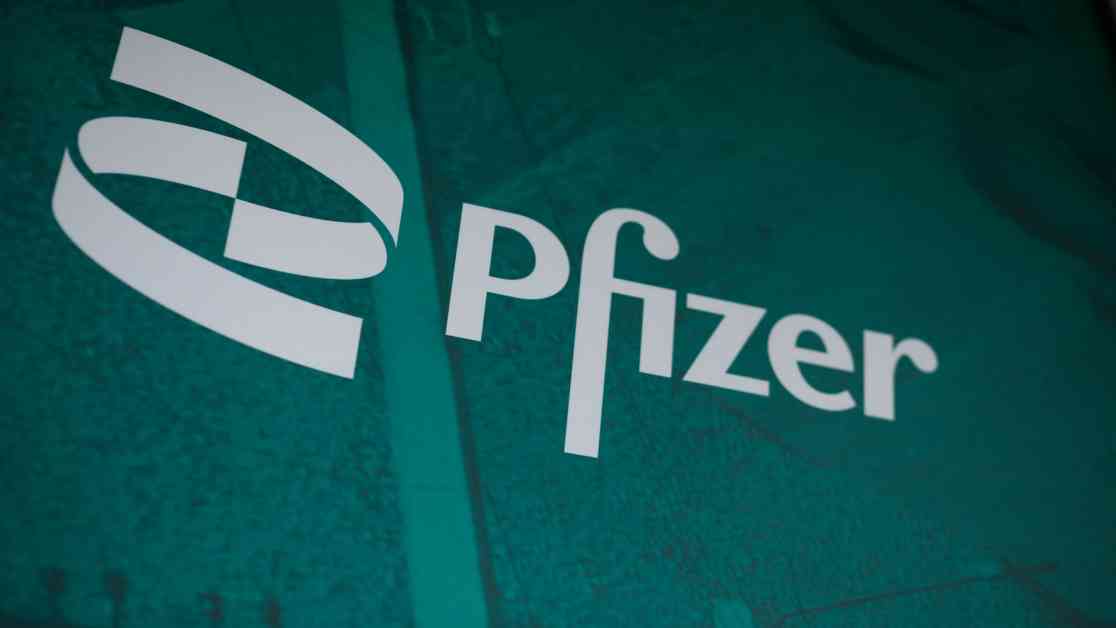Pfizer’s recent announcement regarding the positive trial results for their experimental drug targeting cancer-related appetite and weight loss has sparked hope among the medical community. The drug, known as ponsegromab, showed promising outcomes in a midstage trial for patients suffering from cancer cachexia, a condition that affects millions of individuals worldwide.
Understanding Cancer Cachexia
Cancer cachexia is a debilitating condition characterized by significant weight and muscle loss in cancer patients. This loss of appetite and muscle mass can leave individuals weak, fatigued, and unable to perform daily activities. In severe cases, it can even contribute to lower survival rates and make cancer treatments less effective. The impact of cancer cachexia on patients’ quality of life is profound, with many struggling to maintain their overall wellness and ability to care for themselves.
Positive Trial Results
The recent midstage trial conducted by Pfizer focused on patients with non-small cell lung cancer, pancreatic cancer, or colorectal cancer who exhibited high levels of growth differentiation factor 15 (GDF-15), a key driver of cachexia. The results of the trial were encouraging, with patients who received the highest dose of ponsegromab experiencing a 5.6% increase in body weight compared to those who received a placebo. Even patients on lower doses of the drug saw significant improvements in weight gain, highlighting the potential efficacy of ponsegromab in addressing cancer cachexia.
Implications for Cancer Treatment
The positive outcomes of Pfizer’s trial could have far-reaching implications for the treatment of cancer cachexia. If ponsegromab receives approval as the first treatment specifically targeted at this condition in the United States, it could revolutionize the way healthcare providers address the nutritional and weight loss challenges faced by cancer patients. By addressing the underlying mechanisms of cachexia and promoting weight gain and improved appetite, ponsegromab has the potential to enhance patients’ overall wellness and improve their ability to tolerate cancer treatments.
Future Development and Regulatory Approval
Pfizer is currently discussing late-stage development plans for ponsegromab with regulators and aims to initiate studies in 2025 that will support a submission for approval. The company is also exploring the potential applications of ponsegromab in other conditions, such as heart failure, where cachexia can also be a significant concern. By targeting GDF-15 and reducing its levels in the body, Pfizer’s drug offers a promising approach to addressing the complex interplay between cancer cachexia and overall health.
In an interview with CNBC, Charlotte Allerton, Pfizer’s head of discovery and early development, emphasized the importance of addressing the unmet needs of cancer patients suffering from cachexia. She highlighted the potential of ponsegromab to not only promote weight gain but also improve appetite and physical activity levels, providing a holistic approach to enhancing patients’ well-being.
Conclusion
Overall, Pfizer’s positive trial results for ponsegromab represent a significant step forward in the treatment of cancer cachexia. By targeting the underlying mechanisms of weight loss and muscle wasting in cancer patients, ponsegromab offers new hope for individuals struggling with this debilitating condition. As Pfizer continues to advance the development of ponsegromab and explore its potential applications in other disease states, the future looks promising for patients in need of effective therapies for cancer-related appetite and weight loss.

















